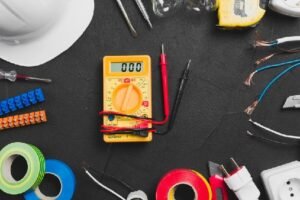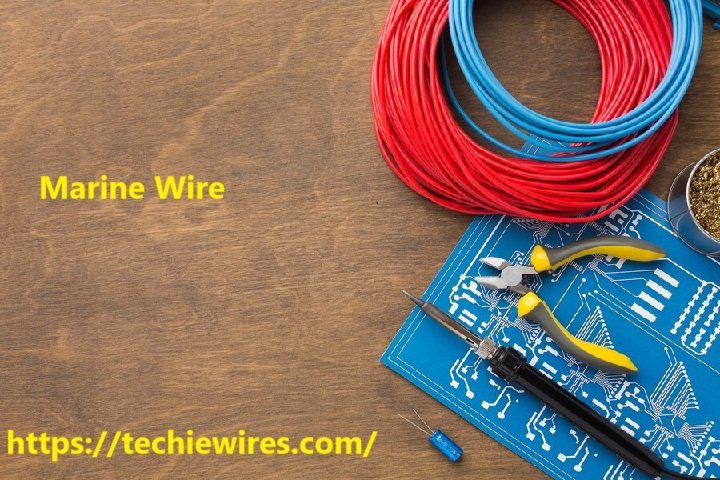Marine Wire: An Essential Guide to Marine-Grade Electrical Wiring
When it comes to wiring on boats or any marine environment, selecting the right type of wire is crucial for safety and performance. The marine environment is harsh, with exposure to water, salt, and humidity, which can cause corrosion and deterioration of electrical components. That’s why marine wire—specifically designed for these conditions—is indispensable.
In this guide, we’ll walk you through everything you need to know about marine wire: what it is, why it’s important, types of marine wire, materials used, how to choose the right one, and much more.
What is Marine Wire?
Marine wire refers to electrical wiring that is specifically designed to withstand the unique challenges posed by the marine environment. Unlike standard household wires, marine wires are made with materials and construction techniques that offer superior resistance to corrosion, moisture, and vibrations.
Key features of the marin wire include:
- Corrosion Resistance: Marine wire is typically made from tinned copper, which resists corrosion caused by saltwater.
- Flexibility: Marine environments are subject to constant movement and vibration. Marine wire is designed to remain flexible without cracking or breaking.
- High-Quality Insulation: The insulation on marine wire is typically thicker and more resistant to moisture, heat, and chemicals than standard wire insulation.
Why is Marine Wire Important?
Marine environments are extremely corrosive, especially when saltwater is involved. Using the wrong type of wire could lead to deterioration, short circuits, and even fires. Here’s why marin wire is essential:
- Durability: Marine-grade wires are specifically designed to last in harsh conditions. They are resistant to moisture, oil, gasoline, and ultraviolet light.
- Safety: Using marine-grade wire reduces the risk of electrical failure due to corrosion or exposure to the elements. This means fewer chances of fires or malfunctions.
- Efficiency: Properly insulated and corrosion-resistant wires ensure that electrical current flows efficiently, reducing the risk of energy loss.
Types of Marine Wire
Marine wire is available in several types, each suited to different applications on a boat. Some of the most common types include:
1. Marine Battery Cable
Marine battery cables are used to connect batteries to various systems on the boat. These cables are thick, highly conductive, and feature heavy-duty insulation to withstand the heavy currents that batteries provide.
- Common Sizes: 2/0, 1/0, 1 AWG, 2 AWG
- Applications: Connecting the battery to the engine, inverters, and other high-power systems.
2. Primary Marine Wire
This type of wire is commonly used for general-purpose wiring throughout the boat. It’s typically flexible and easy to work with, making it ideal for installing or replacing electrical systems.
- Common Sizes: 14 AWG, 12 AWG, 10 AWG
- Applications: Powering lights, switches, and electronics.
3. Marine Coaxial Cable
Coaxial cables are used to transmit signals, such as those from a VHF radio or GPS. Marine coaxial cables are designed with extra shielding to protect the signal from interference, even in the harshest environments.
- Common Sizes: RG-58, RG-8X
- Applications: VHF radios, antennas, radar systems.
4. Marine Tinned Wire
Tinned marine wire is a high-quality type of wire that has a thin coating of tin over the copper conductor. The tin coating provides an extra layer of protection against corrosion, which is particularly important in saltwater environments.
- Common Sizes: 18 AWG, 16 AWG, 14 AWG
- Applications: Electrical systems that are exposed to moisture or salt air.
Marine Wire Materials

When choosing marine wire, it’s essential to understand the materials that make up the wire and the insulation. The primary materials used in marin wire are:
1. Copper (Tinned Copper)
Marine-grade wire is almost always made from copper, but more specifically, it’s often made from tinned copper. Tining the copper protects it from corrosion, which can be a significant problem in salty marine environments. Tinned copper is more resistant to oxidation and can last much longer in wet conditions.
- Advantages of Tinned Copper:
- Excellent conductivity.
- Corrosion resistance.
- long-lasting performance in marine environments.
2. PVC (Polyvinyl Chloride) Insulation
The insulation that covers the marin wire is usually made of PVC. Marine-grade PVC insulation is thicker and more robust than standard PVC insulation. It’s resistant to UV rays, oil, and chemicals, making it ideal for use in marine environments.
- Benefits of PVC Insulation:
- Protects the wire from moisture and salt.
- UV-resistant, ensuring longevity even when exposed to sunlight.
- Heat-resistant, maintaining performance in high-temperature conditions.
3. Heat-Shrink Tubing
In addition to insulation, marine-grade wiring often requires additional protection at connection points. Heat-shrink tubing, which shrinks tightly around the wire when heated, provides a watertight seal that prevents corrosion at critical points.
Choosing the Right Marine Wire
When selecting marin wire, you need to consider several factors, including the wire’s size, insulation, and the environment in which it will be used.
1. Wire Gauge
The gauge of the wire is one of the most critical factors to consider. Wire gauge refers to the thickness of the wire. In general, the larger the number, the thinner the wire.
- Thicker Wires (Lower Gauge): Used for high-power applications like connected batteries or engines.
- Thinner Wires (Higher Gauge): Suitable for low-power applications like lighting or electronics.
To ensure you’re using the correct gauge wire, always consult the electrical specifications for your boat’s systems.
2. Amperage
The amperage, or the amount of electrical current the wire will carry, also plays a role in wire selection. Ensure the wire you choose can safely carry the electrical load without overheating.
- Tip: Always choose a wire that can handle more amperage than you expect to avoid potential issues.
3. Insulation Type
In marine environments, the wire will be exposed to elements like moisture, salt, and sunlight. Choose a wire with high-quality insulation that can withstand these conditions.
- Standard Marine Wire Insulation: PVC is the most common, but in high-heat or more rugged environments, you might need additional protection.
4. Length of the Wire Run
The longer the wire runs, the more resistance the wire will face, which can reduce efficiency and performance. Make sure to factor in the length of the wire run when choosing your wire gauge. Longer runs may require thicker wires to ensure there is no voltage drop.
Installation Tips for Marine Wire
Proper installation of marine wire is essential to ensure it lasts as long as possible and functions efficiently. Here are some key tips for installing marin wire:
1. Use Proper Connectors
Use marine-grade connectors, such as crimped connectors, to ensure a secure and corrosion-resistant connection. Avoid soldering wires on a boat, as the vibrations can cause the soldered joints to crack.
2. Secure the Wiring
Ensure that all wiring is secured properly to avoid chafing or damage from movement. Use cable clamps and ties to keep the wiring in place, especially in areas where there is a lot of vibration.
3. Protect Connections
Always cover connections with heat-shrink tubing or other waterproof materials to prevent moisture from causing corrosion at the connection points.
4. Avoid Sharp Bends
Avoid sharp bends in the wire, as this can damage the insulation and the wire itself. Instead, use gentle curves when routing the wire.
Marine Wire Standards and Certifications
When buying marine wire, look for certifications to ensure that the wire meets marine standards. The most common certifications include:
- ABYC (American Boat and Yacht Council): Sets safety standards for wiring on boats.
- UL (Underwriters Laboratories): UL certification indicates that the wire has been tested for safety.
- CSA (Canadian Standards Association): CSA-certified wire meets the safety standards set by the Canadian government.
Always ensure that the marin wire you purchase meets these certifications for safety and reliability.
Conclusion
Choosing the right marin wire is essential for the safety and efficiency of your boat’s electrical systems. From battery cables to primary wiring and coaxial cables, each type of marine wir serves a specific purpose and needs to be chosen carefully. Consider factors like wire gauges, insulation, and length when selecting marine wires, and always ensure proper installation to maximize the lifespan of your electrical components.
Read More: Enhancing Lease Management Through Technology and Automation


